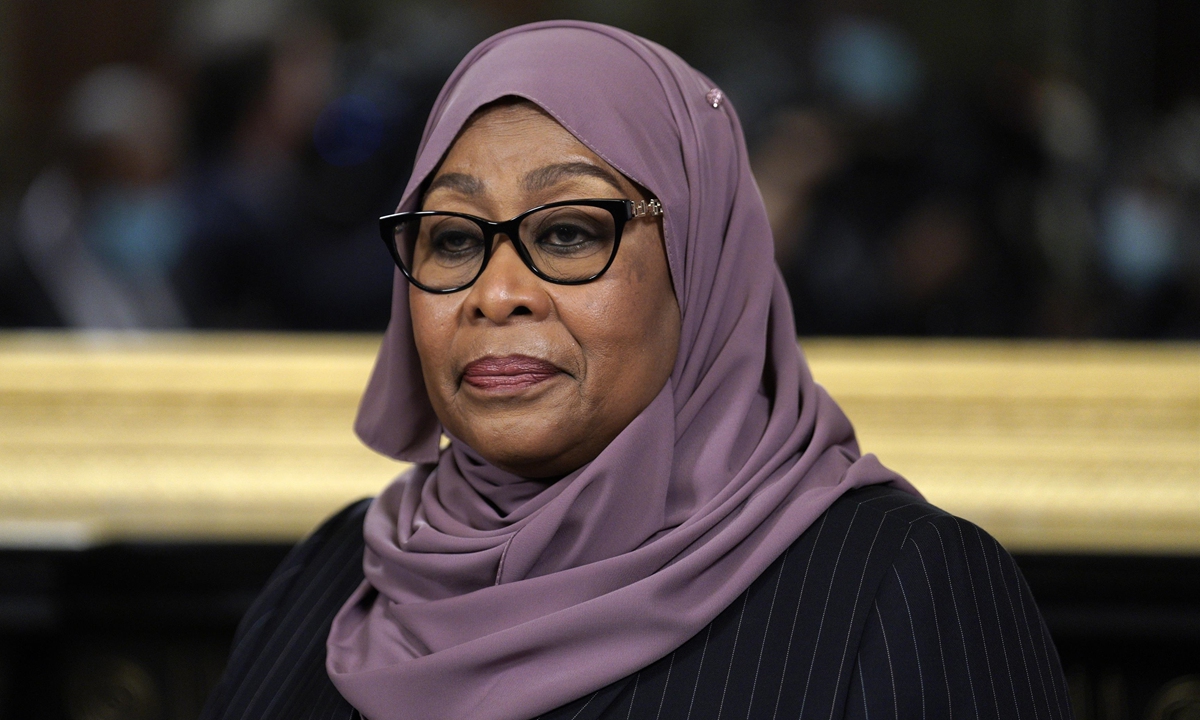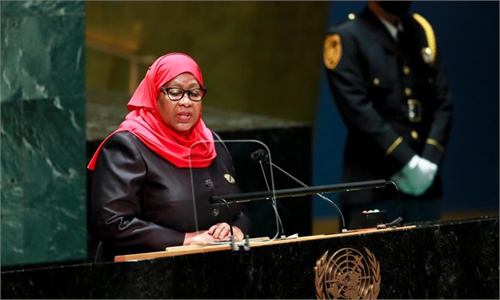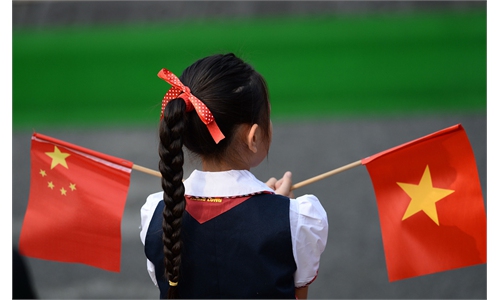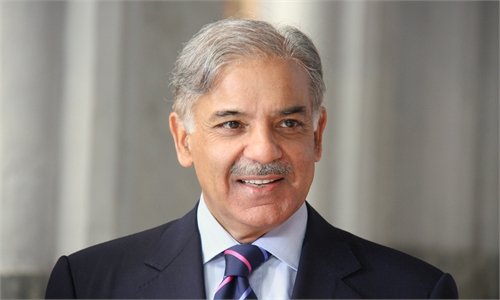Tanzanian president kicks off China visit to boost ties
First African leader visiting China since 20th CPC National Congress highlights long-lasting friendship

Samia Suluhu Hassan, President of the United Republic of Tanzania Photo: VCG
Samia Suluhu Hassan, President of the United Republic of Tanzania, kicked off her three-day visit to China on Wednesday as the first head of state from an African nation to visit China after the conclusion of the 20th National Congress of the Communist Party of China (CPC). Highlighting the long-lasting friendship and comprehensive cooperation between China and Tanzania, which began half a century ago, Chinese experts expect Hassan's visit to enhance bilateral cooperation and open a new chapter for China-Africa relations.
Experts said that during the visit, Hassan probably would not only sign a series of cooperative agreements with China, but communicate with Chinese President Xi Jinping over China's development blueprint in the new era, which was formed at the just concluded 20th CPC National Congress.
We believe that President Hassan's visit will further bolster the building of a China-Africa community with a shared future in the new era, Chinese Foreign Ministry Spokesperson Zhao Lijian, noted at a routine press conference on Wednesday.
President Hassan is the first African head of state China will receive after the 20th National Congress of the CPC. China-Tanzania friendship is an epitome of China-Africa friendship and cooperation. China-Africa relations have been strong, and the two sides have ushered in a new era of building a high-level China-Africa community with a shared future. China is working closely with African countries to carry forward the spirit of China-Africa friendship and cooperation under the new circumstances, and jointly implement the outcomes of the Forum on China-Africa Cooperation (FOCAC) Dakar Conference, Zhao said.
China and Tanzania are expected to sign cooperation documents during Hassan's visit and these fruitful results would inject new impetus into the development of bilateral ties, Tanzania's Ambassador to China Mbelwa Kairuki was quoted as saying by the China Central Television (CCTV) on Wednesday.
Hassan is looking forward to exchanging opinions with Xi on matters of mutual concerns, including bilateral ties, economic cooperation and development, security and other global issues, according to the ambassador.
As Ambassador Kairuki said, the upcoming visit by President Hassan will fully demonstrate the high-level friendship and mutual trust between China and Tanzania. We believe this visit will promote the development of the relations at an even higher level, Zhao noted.
Chinese experts highlighted the two countries' tradition of friendship from half a century ago when commenting on why the Tanzanian president is the first African head of state to visit China after the 20th CPC National Congress.
From the Tanzania-Zambia Railway built in the 1970s, to Xi's visit in 2013, to cooperation under the Belt and Road Initiative, the two countries have formed a long-lasting friendship and reached comprehensive cooperation, covering various fields from infrastructure construction, agriculture to culture, according to He Wenping, director of the African Studies Section at the Institute of West Asian and African Studies under the Chinese Academy of Social Sciences.
The Tanzania-Zambia Railway line that runs between Dar es Salam in Tanzania and Kapiri Mposhi in Zambia was built with Chinese aid between 1970 and 1975. It was meant to serve as the main outlet to the sea for Zambia's exports at a time southern Africa was facing political upheaval, according to the Xinhua News Agency.
Running some 1,870 kilometers, the railway is sometimes regarded as the greatest engineering effort of its kind since World War II. The railway took only five years to build and was finished ahead of schedule in 1975. Before construction began, 12 Chinese surveyors traveled for nine months on foot from Dar es Salaam to Mbeya in the Southern Highlands to choose and align the railway's path. Thereafter, about 50,000 Tanzanians and 25,000 Chinese were engaged to construct the historical railway, according to Xinhua.
In the 1960s and 1970s, tens of thousands of Chinese experts and railway workers went to Africa and joined hands with the people of Tanzania and Zambia to build the railway, which became a symbol of China-Africa cooperation, Kairuki told CCTV.
China and Tanzania have witnessed deepening political mutual trust and fruitful practical cooperation and have maintained sound cooperation in international and regional affairs. The two countries have seen trade and business exchanges grow over the past decades. China has set up agricultural demonstration centers in the country, investing in many sectors such as cotton and leather.
On major infrastructure projects, Tanzanian news outlet The Citizen recently reported that Tanzania is set to start construction of Bagamoyo Port in the next financial year, a key infrastructure project that was set to include a special economic zone and attract hundreds of companies. Some media reports predicted that when completed, the port is expected to be the largest in East Africa.
"The implementation of the project was once disturbed by some Western countries' so-called China's debt-trap diplomacy narrative. But I believe that Tanzanian authorities can tell right from wrong when witnessing the tangible benefits China's projects had brought about to Africa," He Wenping noted.
Besides signing cooperative agreements, Hassan may communicate with Xi over China's development plan in the new era and the governance of the country as China had clearly signaled its path to modernization and national rejuvenation and clarified the concept of Chinese modernization during the 20th CPC National Congress, He Wenping noted.
Tanzania and other developing countries could not only reap practical benefit from cooperating with China, but also learn from China's experiences and opinions on development to explore their own path, experts noted.



